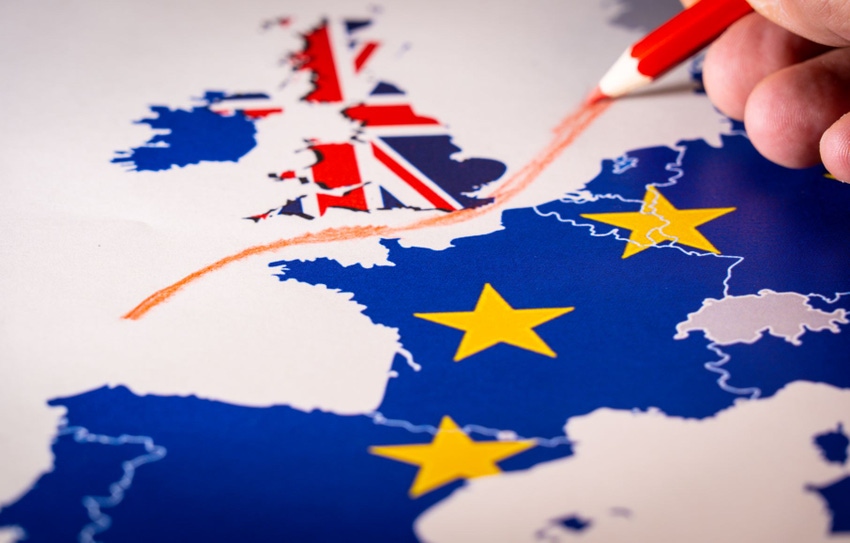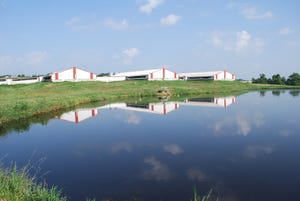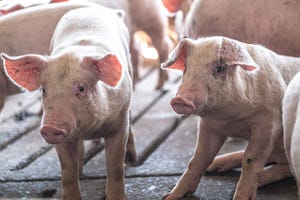UK restricts pork product movement to protect Britain's pigs from ASF
Action follows new risk assessment that places the likelihood that African swine fever virus may be brought into Great Britain at a medium risk.
August 31, 2022

Strict new controls restricting the movement of pork and pork products into Great Britain to help safeguard Britain's pigs from the threat of African swine fever were announced Wednesday. In recent months, ASF has been spreading in mainland Europe leading to the deaths of thousands of pigs and causing significant disruption to the meat trade. With no vaccine available, the disease poses a significant risk to Britain's domestic pig herd and long-term ability to export pork and other pork products around the globe.
The new control, which comes into force Sept. 1, will strengthen the requirements for bringing pork and pork products into Great Britain from the European Union and European Free Trade Association states. It will no longer be legal to bring pork or pork products weighing over two kilograms, unless they are produced to the EU's commercial standards. This does not apply to commercial imports, which remain unaffected by the control.
This action comes following the publication of a new risk assessment, conducted by the Animal and Plant Health Agency, which recognizes that the likelihood that the ASF virus may be brought into Great Britain stands at a 'medium risk.' It found that the most likely way the virus could be introduced to Great Britain is by a member of the public bringing pork or pork products back from an ASF-affected country. This measure will help limit possibly infected pig meat being brought into Great Britain through various means, such as in passengers' luggage or in vehicles.
"An outbreak of African swine fever is one of the biggest threats our pig industry faces today. We are not complacent and this decisive and proportionate action will stop the entry of pork products that pose the greatest risk. It is essential we maintain the highest levels of biosecurity and all visitors to the UK will need to abide by these new regulations," said Department for Environment, Food and Rural Affairs Biosecurity Minister, Lord Richard Benyon.
"If African swine fever ever reached the UK, it would have a severe and damaging impact on our pigs and pig industry. A single outbreak of this highly infectious disease would also harm relations with our trading partners and threaten the livelihoods of thousands of our pig farmers," said UK's Deputy Chief Veterinary Officer Richard Irvine. "We are taking this action to limit the risk of disease spreading by banning people bringing in high-risk pork and pork products that could carry this virus until further notice. Everyone can do their bit to help stop animal diseases spreading to this country by simply not bringing pork and other meats onto our shores."
"African swine fever is a highly fatal viral disease which is a major threat to our pig industry," said Welsh Government Minister for Rural Affairs and North Wales and Trefnydd, Lesley Griffiths. "Although not present in the UK, it is spreading across Europe and this timely action is important in helping to prevent the disease reaching our shores. We continue to monitor the international situation very closely and review our disease control tools."
Everyone can help to stop the spread of ASF to the UK by doing the following:
If you are visiting non-EU countries, you must not bring any pork or pork products back to the UK.
If you are visiting EU or EFTA countries (Switzerland, Norway, Iceland or Liechtenstein), you must not bring pork or pork products which are over 2kg unless they meet EU commercial production standards.
Disposing of leftovers or food waste in secure bins that pigs or wildlife cannot access.
Farmers, the public and members of the food industry should practice high biosecurity standards, including never feeding catering waste, kitchen scraps or meat products to pigs, which is illegal and can spread the disease.
The government continually monitors disease outbreaks around the world to assess whether there may be risks for the UK and takes action to limit the risk of the disease reaching our shores.
Source: UK Department for Environment, Food and Rural Affairs, which is solely responsible for the information provided, and wholly owns the information. Informa Business Media and all its subsidiaries are not responsible for any of the content contained in this information asset.
You May Also Like



